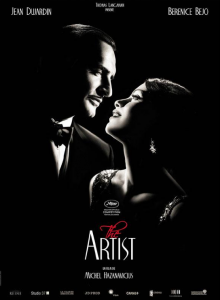It Isn’t a Movie Critic’s Job to Affect Box Office — But We Do
Posted on April 19, 2016 at 3:10 pm
Headlines crowed over the disparity between critics’ poor reviews of “Batman v. Superman” and the very healthy opening weekend box office. The leading trade publication, Variety, wondered “Do Critics Matter at the Box Office?” Fortune sneered, How ‘Batman v Superman’ Fought Off Critics and predicted that the bad reviews would not affect the box office.
It isn’t the critics’ intention or responsibility to have an impact on ticket sales. As Laura Miller wrote in Slate, the critic is there to engage in and guide a conversation with the film, the filmmakers, and the audience.
he dumbest aspect of the Variety piece is its insistence on treating the success of “Batman v Superman” as a “devastating” rout for the critics who hated it. “Instead of serving as box office kryptonite,” Lang writes, reviewers were forced to watch “helplessly” as the ticket sales racked up. Critics wanted to “kill” Batman v Superman, he believes. And the critics, those elitist would-be supervillains, were thwarted!
Not so fast. I’ve never met a critic who wanted to “kill” any work, or who truly expected their harsh review to significantly impact the success of a mass-market product like Batman v Superman. We know the limits of our power, which is modest indeed. Sometimes, of course, critics hate a chart-topper, but the negative reviews we write in response are meant as a cry in the wilderness, an attempt to speak for and draw together all the far-flung dissenters and grapple with a work whose overwhelming success we hope to understand. Because here’s the thing: Every critic knows that the person most eager to read your take is the person who’s already seen the film, watched the TV series, read the book. They come to you not for consumer advice, but for company and (to use Scott’s favorite metaphor) conversation. They want to compare notes. They hope you can explain why they found the work so profound or so stylish or so ridiculous. Sure, sometimes we critics try to drum up enthusiasm for an overlooked jewel, but it’s much harder to interest readers when they haven’t already invested time in the work.
As Miller notes, there is a built-in audience for some films that have nothing to do with reviews. A large percentage of the first weekend tickets were purchased before the reviews were published. A combination of bad reviews and bad word of mouth from that first weekend audience — who also chose not to return to see it again — led to a record-setting drop in ticket sales.
Over at CriticWire, Sam Adams reports that critics do affect the box office.
But according to an extensive data analysis by Metacritic, the collective judgement of critics, at least as relayed by the site’s proprietary Metascores, turns out to be a fairly reliable predictor of a movie’s success. Analyzing every major release of the last decade — which they define as any movie that opened in at least 2,000 theaters between January 1, 2006 and December 31, 2015 — they found that movies with better reviews tend to make more money. Movies with a Metascore between 91 and 100 made an average of $59.1 million over their opening weekend, while those with a Metascore of 19 or lower averaged an opening weekend gross of just $14 million. The differences grow even more pronounced over the long run: Those in the top decile dropped an average of 37.7 percent in their second weekend, while those in the lowest dropped by 52.5 percent.
While we’re disposing of some myths about critics, here’s another. A pair of angry fans wrote to Scott Renshaw, the critic who “spoiled” “Zootopia’s” 100% rating on Rotten Tomatoes to insist that he change his review. They were six years old. Renshaw’s response was just right. It concluded:
What I’d really hope, however, is that you think about reviews differently, including (and maybe especially) those you disagree with. My job as a professional critic isn’t to tell people what to think, or to give them assurance that what they thought about a movie is “right.” All I can do is think honestly about how I reacted, and perhaps help people see something in a movie that they might not have seen otherwise. The fact that I didn’t love Zootopia doesn’t change how much you did love it, and that’s never my intention. But you should become comfortable with the idea that there are opinions about things out in the world that will be different from yours, and you can be confident in your own opinions without feeling that the other opinions out there are a problem that needs to be solved. Rotten Tomatoes’ score for Zootopia just doesn’t matter. If that movie changed you, or made you happy, or made you think, that matters.
Those who are interested in learning more about what critics do should read Better Living Through Criticism by New York Times critic A.O. Scott. Samuel Fragoso has a superb interview with Scott about the book on Fandor.
In terms of the discovery of films and bringing attention to films that might be overlooked or neglected otherwise, critics still have a role to play, and I don’t think that the critics at the Times are necessarily anomalous. We’re not alone. I feel like—and I don’t have data to back this up—there is an appetite for it. I feel like people still want to read something interesting or thought-provoking or useful about the stuff that they’re seeing. I’m not sure whether in the past there was quite as large as a constituency for film criticism as we sometimes think. It’s always been a minority that has sought out the opinions of critics. Even the great influential ones, like the Pauline Kaels, the Andrews Sarrises, and the Vincent Canbys, were reaching a narrower public than we think.


